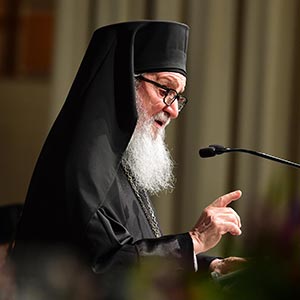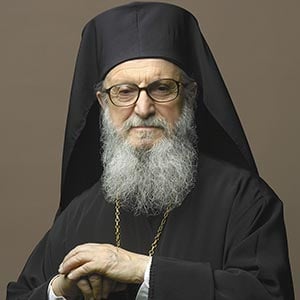Since our 39th Clergy-Laity Congress last summer, we have been consistently and methodically devoting a series of reflections to analyzing various elements of its theme: “Gather My People to My Home.” In past reflections, we have explored whom we precisely mean when we speak of “God’s People.” We have reflected upon different and equally valid ways of understanding what it is that we reference when we speak of the Church as “God’s Home.” In building upon this foundation, we are now ready to devote our next few reflection pieces to the word “Gathering,” which is a central concept of our Congress’ theme, and perhaps, its most complex and demanding action.
As this reflection is the first of many that will explore the concept of “Gathering,” its purpose is to identify the many issues associated with this term by assessing the tremendously diverse religious landscape of America, of which we as the Greek Orthodox Church in America are a vital part. In this way, we will have a greater understanding of how we might appreciate what it truly means to “Gather” God’s people to His Home.
Let us begin with an important observation by noting that the term “Gather” is the only verb that is used in our theme. We should also note that this verb is used in the imperative mood. It is not simply a statement or a wish; rather, it is a call to action. Indeed it is properly understood as a command from the Lord that He issues to us on a continual basis as part of what it means for us to be faithful Orthodox Christians. In view of such a degree of importance, we must acknowledge that the issues that pertain to our work of gathering God’s people to His home are numerous and complex. We must also underscore the importance of our active and direct engagement with these issues and the people they concern, no matter how complicated the needs and circumstances of people may be.
Among these issues associated with our task of “Gathering” the people of God, is the self-evident reality that in our contemporary society, different people stand in differing relationships to the Church. Here, it is helpful to illustrate a few examples. One such example is presented to us when we encounter our brother and sister Orthodox Christians who, for various reasons over the passing of time, may have lost what had once been for them a close connection to the Church. Another is presented when we encounter the so-called “unchurched,” by which we mean people who have never really identified themselves as affiliated with a Christian church or perhaps even with any religion at all.
There are further, more dramatic examples of how different people stand in differing relationships to the Church. One such example presents itself to us when we encounter people who are honestly struggling with religious questions and with their quest for God. Another example is presented to us when we engage in conversations with others who, having arrived at their own conclusions, profess openly that they do not believe in God. Finally, we have examples of those who simply do not care about matters of faith, or, in some cases, who are even hostile to religion.
These examples are by no means foreign to us. Indeed, most of us can readily call to mind many people whom we genuinely love as friends or even as family members as we reflect upon each of these above-mentioned examples. In reflections to follow, we will explore together more specific ways of how we might “Gather” the many people of God’s flock to His Home. In all cases, as we reflect upon the social realities which different people face, what is most important is that we continuously remember and affirm that God, out of His abundant love and great mercy, has created all people in His very image and likeness. Therefore, His Home is open to all people, regardless of any previously mentioned “human” categories of distinction. Therefore, let us begin our approach to the “Gathering” of others to God’s Home with a prayerful disposition. In “Gathering,” let us heed the words of the Lord by refraining from casting judgment on others, and let us go forth to share abundantly with all the joyful message of His unconditional welcome, and the peace and the love of Jesus Christ that is within our hearts.
† DEMETRIOS
Archbishop of America

